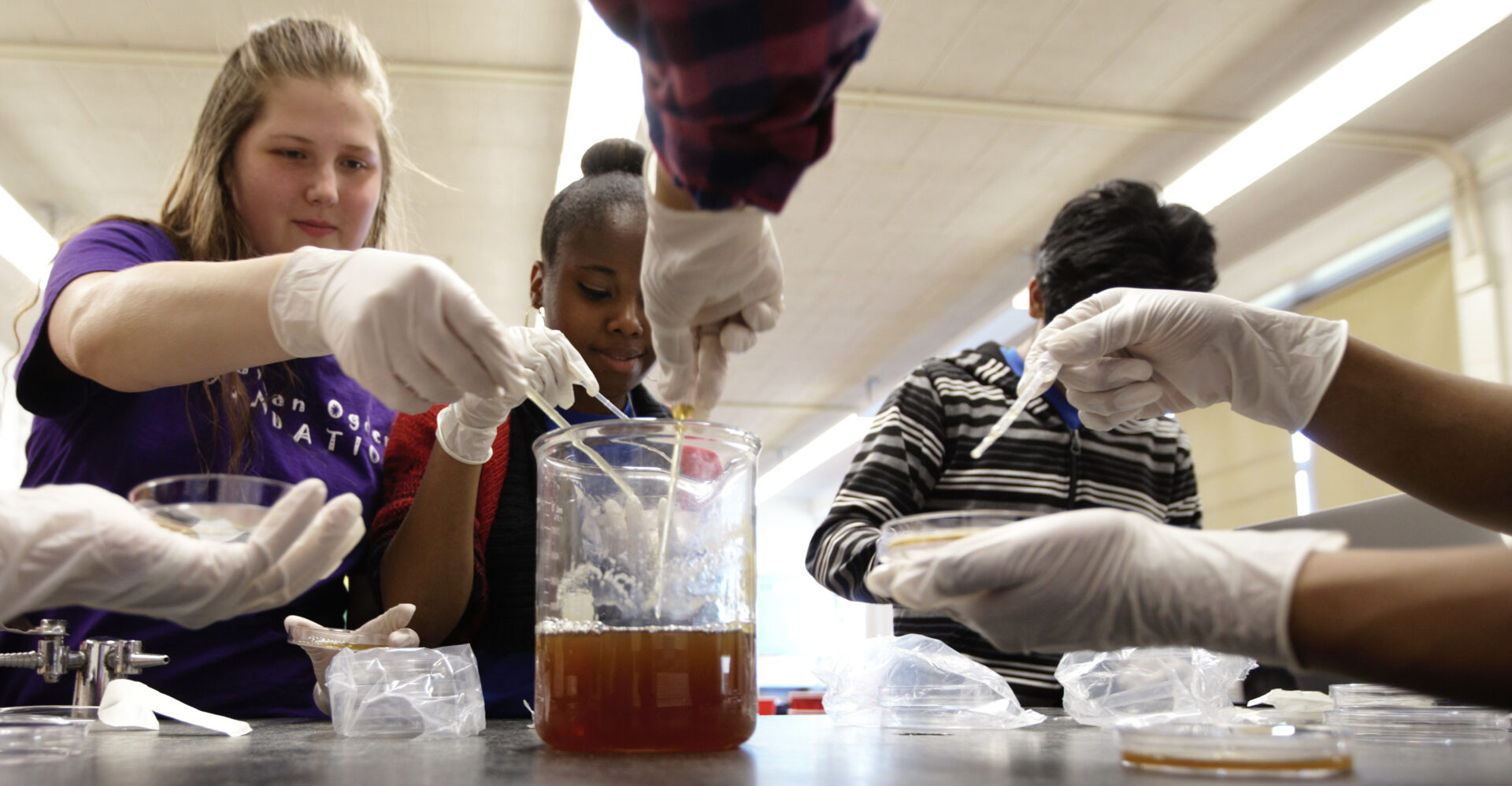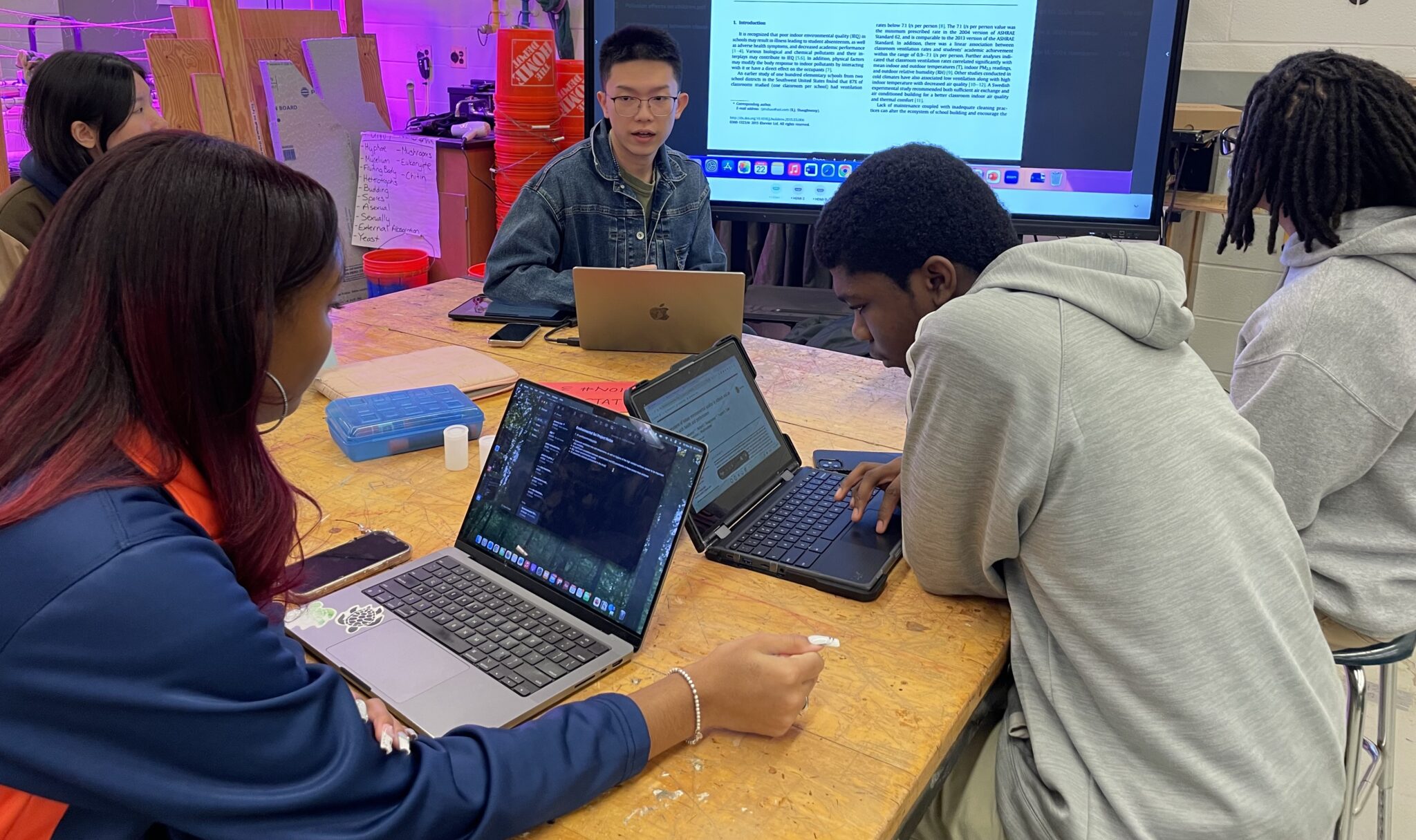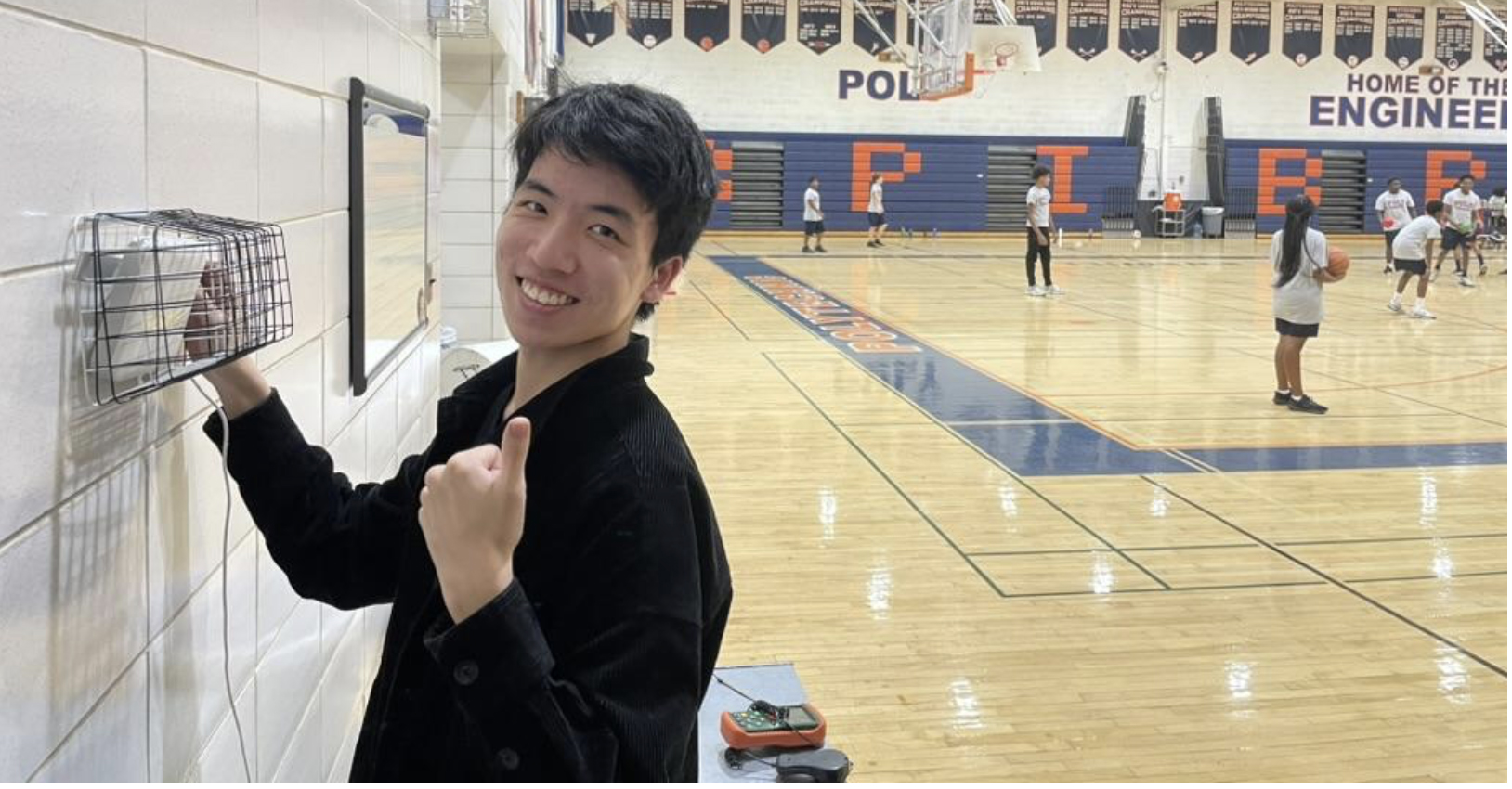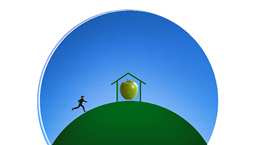Our Students Use Science to Improve Their Lives
We created Cool Green Schools over 10 years ago to empower students to study and improve conditions their school.
Rooms were often too hot or too cold, with poor ventilation, poor lighting, and asthma triggers that reduced the health and success of students. That was bad. What is worse is that these schools were failing to engage students in meaningful science investigations that could teach them how to study and solve problems in their lives and in our world.

As they worked to improve their school, the students improved. They got better at science, at thinking through problems, working together, creating solutions, and teaching others.
This project aligns with Next Generation Science Standards and STEM, but it’s main success is in focusing on the challenge to study and improve a factor that affects their health and learning.
As students engage with this challenge, they have to understand how our environments and choices affect them, and then collaborate with their classmates to solve a myriad of problems to create their improvements.
This is learning that challenges students to solve problems in their lives.
Our students test their schools as scientists, public health, and building professionals.
It is no secret that environmental conditions at schools affect student health, attendance, and performance. But too many schools are failing to provide students a healthy and productive environment at school.
Cool Green Schools helps students and school staff test and improve their school environments so they can achieve strong gains in student health and achievement.
This project is more than a cool science or career readiness project. It is a pathway for schools to become a catalyst for creating healthier, more successful students and communities.
Healthier Students, Families and Communities
Student health doesn’t begin or end at the school entrance. When students learn to identify asthma triggers and toxics at school, they can use that information to reduce asthma triggers and toxics at home.
Want to help rid our communities of lead poisoning?
Baltimore City is asking homeowners to check their water supply lines to see if they contain lead, so the city can replace lines containing lead for free to the homeowners.
Showing students how to safely test and report their water lines can help their families, and our communities avoid the harm of lead poisoning.
Want to reduce asthma hospitalizations and asthma-related absences?t
Helping students learn to identify and reduce asthma triggers and toxics and connecting them to health resources can improve their health and school performance.
Want to help our families succeed?
Showing students how to lower their home energy costs can help them save money for their priorities.
The Maryland Community Solar program saves families 10-25% of their electric charges.
Energy efficiency kits with LED light bulbs, low flow shower heads and hot water pipe insulation are free of charge from their utility and reduce their utility bills by 2-5 percent.
We teach students how to apply for free whole home renovation and electrification program which can provide up to $60,000 dollars of home renovations to improve the health and efficiency of their homes.
We teach students how how to apply for energy assistance to help families on tight budgets keep their lights, refrigerators and heat on.
We love our Partners!

Our partners and funders continue to make our work possible.
We are starting new collaborations with Clean Air Partners, Prince Georges Public Schools, Johns Hopkins School of Public Health, Mount St. Josephs High School, and The Carver School of Art and Technology. We will add many more partners to this list in February.
We are thrilled with the support and commitment of our partners that join us to educate and protect our youth and our world.
Thanks so much to the following donors who have supported this project and purchased the equipment necessary for this program to succeed.
This includes: The Miles White Foundation, The Mitzvah Fund, Johns Hopkins Community Research Grant, Morgan State University Community Grant, Baltimore Community Foundation Grant, and Modern Classrooms.
We are grateful for the partnership we have with the bright graduate students in the Applied Environmental Health Practice course at the Bloomberg Center for Public Health for mentoring our students, and developing research studies on these topics.

Graduate Students at Johns Hopkins Bloomberg School of Public Health developed a library of studies for high school students to reference for their own research projects.

We are also very grateful to the undergraduate students at Johns Hopkins for helping mentor students and improving and expanding our programing at Cool Green Schools.

Thank you!

It is a joy to see students rise to the challenge of this work.
Shan Gordon WELL AP, LEED O+M Founder, Cool GreenSchools.org shan@coolgreenschools.org 410-336-8239
